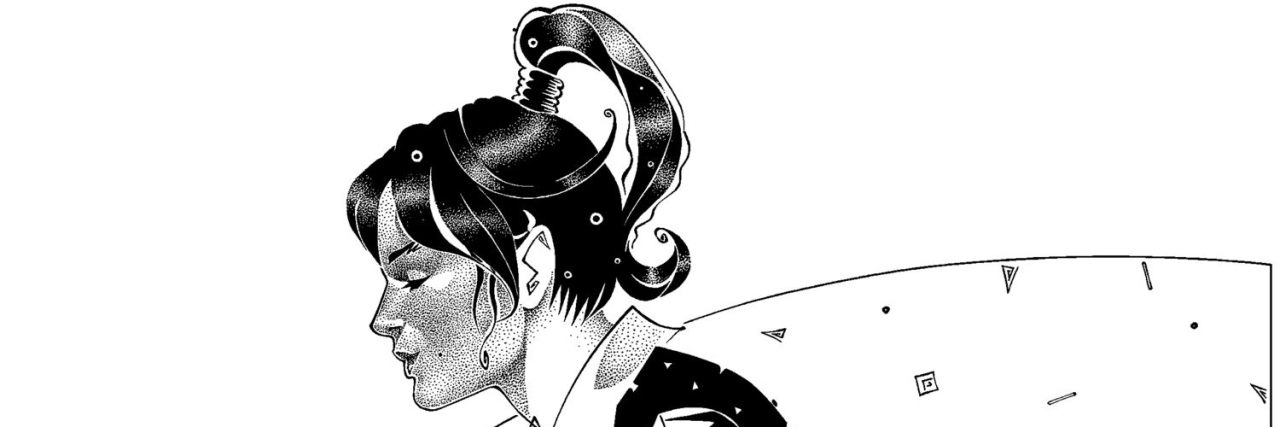It was a sunny, carefree day in the summer of 2012. I was nearing the first day of my freshman year at a brand new high school, but I wasn’t too worried about it. I spent my days playing with my siblings in the backyard and giving my pooch some well-deserved cuddles.
And then my mom shared with me some news.
I was in the laundry room with her, helping her put dirty clothes into the washer when she told me.
I have Asperger’s.
She and my father had known about my diagnosis since I was in middle school. I went through a series of tests in a special ed program (and I had no idea what I was doing or why I was there), and the paperwork showed I was on the autism spectrum. She compared my diagnosis to a girl I’d known in our hometown. She was mostly nonverbal and always clutched shoelaces or stuffed animals in her hands whenever she came to youth group. I didn’t really pay much attention to her, but being compared to her shocked me. In my eyes, I seemed pretty “normal” in comparison to everyone else. Sure, I was shy and introverted, but I just played it off as a typical thing and didn’t really dig deep into who I was or how I acted. And yet, I was different. I had a fear of speaking up, of being the center of attention. I didn’t do well in certain school subjects, but I did excel in others. I found it hard to express myself, and sometimes I’d say things I didn’t even mean to say. I began to understand just how that could all be possible.
It didn’t all make sense at first, though. I didn’t really say much as my mother went on about what Asperger’s is and why I had been placed and would be placed in special ed. She said they had waited to tell me until I was old enough and mature enough to understand why. After the conversation, I walked to my room, face-planted into my bed and cried for about an hour. I felt betrayed, humiliated, angry. Mad at my parents. Mad at God for making me this way. My father eventually came to my room and gave me more information. He comforted me as best he could and made sure I understood what my mom meant. I did understand. It didn’t mean I liked it, though.
As the summer ended and the year began, I didn’t change much about how I acted. The diagnosis didn’t really change the way I portrayed myself to other people. I didn’t carry that with pride. It felt more like a burden. I felt ashamed at how different I truly was, and I didn’t want anyone else to make fun of me for it. Eventually, I did learn my lesson. I chose to embrace who I was, and I chose to tell other people about it. This process took years. Years of me figuring myself out. It took God opening my heart to see how wonderful and amazing I truly was and Him revealing I am who I am for a reason. I realized it shouldn’t matter what others think about me, but it should matter what I think about myself.
And now, I stand before you today, six years later, completely open and honest about my autism. It was a long process, but I now know who I am, and I want to share that with others. I want other people to understand who I am and that it’s OK to just be yourself.
Fourteen-year-old me probably wouldn’t even recognize the present me right now. If she and I ever met, she wouldn’t even know who I was. She’d probably ignore me and be afraid to talk to me and move on. I am not 14-year-old me. I know who I am and how I work, and even though I don’t yet know why I am here, I do know I will not keep quiet about my differences, and I will be a voice for those who have autism but maybe cannot speak for themselves.
Am I still angry for being different? Of course not. I would rather be who I am than anyone else on this planet. I am thankful for wonderful parents who walked me through the process of my diagnosis, and I am thankful for the teachers, leaders, mentors and friends in my life who help shape who I am today. Without you guys, I wouldn’t be here writing these things. So thank you.
To the reader, thank you for taking time out of your day to read this. I hope my words have inspired you in some way and that you can choose to be open about your own differences as well.
Getty image by Jupiterimages

